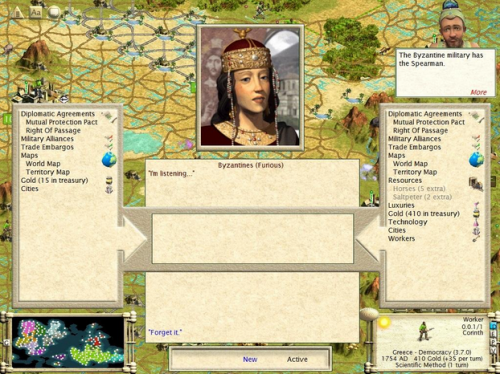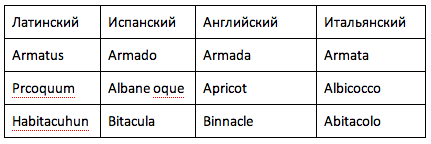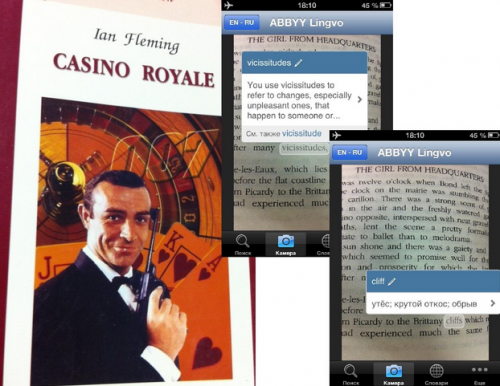In our opinion, knowledge of a foreign language is one of the most important "life hacks". This text is a short story about our reader's personal experience of learning a foreign language.

If you are a biologist, journalist, chemist, engineer, programmer, or anyone else, then knowing even one additional foreign language allows you to look at all the issues in the world from the point of view of at least two languages. You feel more confident in the modern world, your consciousness is not blinded. You don't have to wait for domestic publishers to translate a book, and TV companies to translate a movie or a TV series. Knowledge is power, and knowledge of a foreign language is a double power.
I think that many have recognized our "friends". It was with them that my conscious study of English began: I wanted to understand what Chandler was really joking about and Ross was sighing. Of course, before that I had taken a "young fighter course" on computer games with an English-language interface, since there was simply no Russian analogue at that time.

But the conscious desire to learn foreign languages appeared thanks to the TV series "Friends" (Friends) . At that time, I only had access to a paper dictionary and several English school textbooks with fairly simple grammar and vocabulary. I mastered them pretty quickly, so my ardor cooled down a little, and for a while I stopped intensive classes.
The next stage was my student years, when I got acquainted with the "wonderful" textbooks of our English teachers:

They were compiled according to the following scheme: we take a couple of hundred pages of text in English and translate it into Russian, and then repeat the procedure in the opposite direction . As a result of this exercise, arrays of words turned out to be very difficult to understand and translate. With a paper dictionary, "it" was translated with great difficulty and took a lot of time. But one friend suggested me to use the ABBYY Lingvo electronic dictionary and sent me a key to it. Thanks to this upgrade, I began to translate much faster, and I spent my free time learning new words and expressions. With the paper version, this would probably be possible only if he was enchanted by a kind fairy godmother.
By the way, with an electronic dictionary, my old dream became possible — watching videos in English. Of course, the first thing I looked at was the Friends series with subtitles.

I already understood most of it by that time, but I still had to peek at some things. Gradually, subtitles became almost unnecessary, I could listen and periodically quickly search for a word unfamiliar to me. By the way, in the new version of ABBYY Lingvo x5 there is a translation "by pointing", which works on pictures, PDF files and even in the built-in subtitles for videos:

Another tip that is useful for those who want to simultaneously master, for example, English and French, or Spanish, Italian and German, or other languages that belong to the Romance group — learn Latin . I made this conclusion after talking with several polyglots. Many of them were united by one fact — Latin. Some of them studied in the linguistic class of the school where Latin was taught, some were doctors, historians or, for example, lawyers and crammed it at the university. Knowledge of this dead language is an excellent basis for further study of many European languages.

And the last piece of advice for those who want to improve their foreign language skills is to read books in a foreign language. Before: you read a paper book and periodically look into a paper dictionary. But now everything is much more convenient: there are dictionaries built into e-books, and dictionary applications on mobile. So, for example, in my iOS dictionary there is a convenient photo translation function — I took a picture, tapped on a word and got a translation:

In learning foreign languages, as in many other things, I place great emphasis on self-education. And it seems to me that this is right, since only your own work and perseverance will help you achieve your goal. Of course, when I reached the advanced level, I still had to take a few lessons, but nothing more.
In short, my advice to foreign language learners:
1. The language you are learning should surround you everywhere. And, above all, in those areas that you are interested in: sports, politics, science, video games. If you like football, ask how the "pass", "possession of the ball" will be; if you like theater — "stage", "act", "intermission", video games — change the interface language.
2. Watch movies and read books in a foreign language: this way you will develop visual perception and listening perception, as well as enrich your vocabulary. Start with something simple for yourself: remember "Back to the Future" by heart — look at the version in the language you are studying; read "The Three Musketeers" 100 times — go ahead and scroll through the foreign language analogue!
3. To begin with, you need to have basic knowledge. Open a school textbook or a "beginner's guide" and carefully study the grammar. After all, only with the help of it you will be able to use your vocabulary.
4. Use useful technical innovations. These can be programs or services for memorizing certain terminology, or programs that measure your level, in general, there are a lot of options. For example, the ABBYY service helps me in my work Lingvo.Pro : it contains examples of business letters, and also allows you to store your own translation options.
5. Practice translating in both directions. This is not obvious, but a very useful exercise. Without it, you will be able to understand foreign speech and texts quite well, but it will be quite difficult for you to write and say something yourself.
And what secrets of learning foreign languages do you have? Write about them in the comments!
Instagram Facebook and social networks owned by Meta Platforms Inc. are prohibited from operating in the territory of the Russian Federation.*